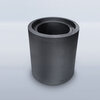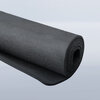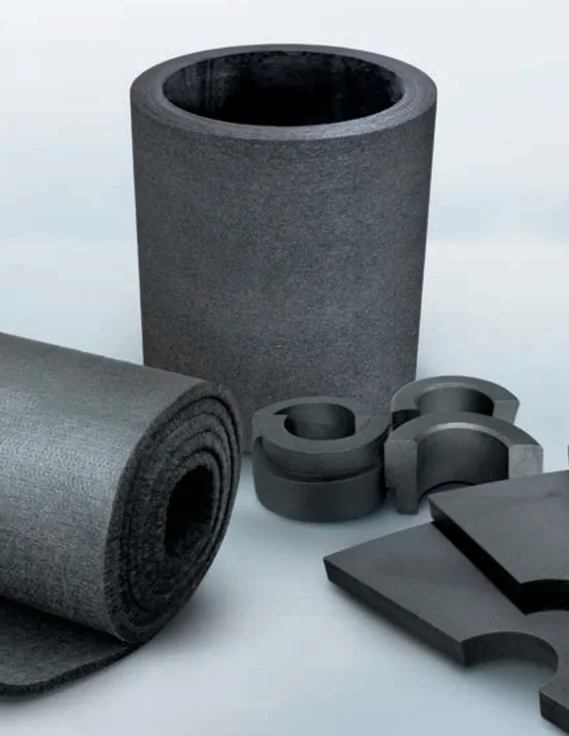
Resisting the most extreme heat
In industries facing the relentless challenge of high temperature processing, Mersen emerges as the definitive solution for high temperature insulation. Our innovative CALCARB® and GRAFSHIELD GRI®, available in boards and in flexible felts, are designed to withstand extreme conditions, ensuring energy savings in semiconductor and solar manufacturing processes. Mersen's expertise not only addresses the demands of today's thermal challenges but also paves the way for future advancements, making us your indispensable partner.
-
Mersen : high temperature insulation for extreme conditions of heat and contamination
As the semiconductor and solar energy sectors evolve, they face increasingly stringent challenges, notably the need for high temperature insulation capable of sustaining their forward momentum. Mersen, a leader in high temperature insulation, addresses these challenges head-on with its advanced high temperature insulation solutions. Our materials are specifically designed to withstand the extremes of heat and contamination, ensuring operational integrity and performance.
-
Make the difference with Mersen high temperature insulation
I've faced the challenge of optimizing our PV cell production for both efficiency and sustainability. Incorporating Mersen's high temperature insulation into our manufacturing process made the difference ! Not only did we see a marked improvement in energy efficiency, but the quality of our ingots also improved significantly.
Adriana Lee
Chief Engineer
-
High temperature insulation
Need to get information about our high temperature insulation?
-
What is high temperature insulation?
High temperature insulation refers to materials designed to withstand and maintain performance under extreme thermal conditions, typically in environments exceeding 2,000°C. These materials are crucial for industries that operate at high temperatures, as they protect equipment, minimize heat loss, and enhance energy efficiency. High temperature insulation must exhibit exceptional thermal stability, resist degradation from prolonged exposure to aggressive environment, and maintain structural integrity to ensure safety and operational efficiency. It often includes a variety of rigid and soft felts that can be tailored to specific application needs, such as thermal protection in semiconductor manufacturing processes where precise temperature control is essential, or in solar crystal growth ingots production, where durability under high thermal and harsh environment conditions is necessary for maximizing efficiency and lifespan.
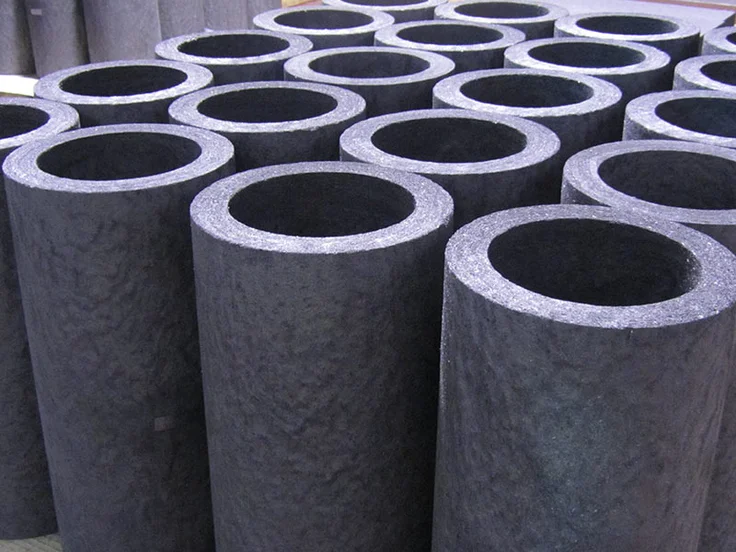
-
Why use high temperature insulation for semiconductors?
High temperature insulation is pivotal in semiconductor manufacturing for several reasons, each critical to the success and efficiency of the production process. The manufacturing of semiconductors involves various high-temperature processes, where precision and control are paramount.
-
- Temperature Stability in Furnaces: Semiconductor manufacturing requires the use of furnaces that operate at extremely high temperatures, necessary for processes like doping, oxidation, and deposition. High temperature insulation for semiconductors ensures these furnaces maintain consistent temperatures, crucial for the quality and uniformity of semiconductor wafers.
- Czochralski (CZ) Process: This method, used for growing single crystal silicon ingots, demands precise temperature gradients and stability. High temperature insulation for semiconductors allows for the control of these gradients, ensuring the ingots grow with the desired crystal properties and minimal defects.
- SiC by PVT : The PVT method is a widely employed technique for the production of SiC single crystals. This process involves the sublimation of SiC source materials in a high-temperature environment, followed by their condensation on a seed crystal to form a single crystal structure. Mersen high performance insulation brings favorable thermal field conditions with uniform radial temperature and moderate temperature gradient.
- Wafers manufacturing: The production of wafers, the foundational elements of semiconductor devices, involves several high-temperature steps. High temperature insulation for semiconductors is essential for maintaining the purity of the environment and the integrity of the silicon, preventing contamination and ensuring the thermal processes are conducted efficiently and uniformly.
- Energy efficiency: By reducing heat loss, high temperature insulation significantly improves the energy efficiency of semiconductor manufacturing processes. This not only reduces operational costs but also minimizes the environmental impact of production.
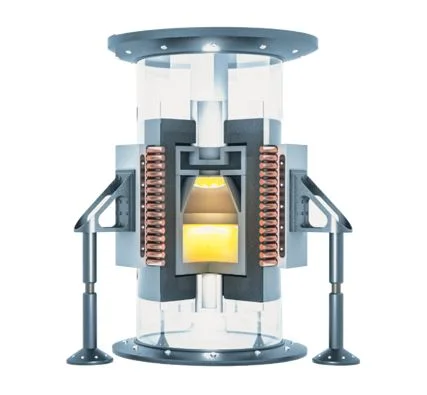
-
Why use high temperature insulation for solar energy?
High temperature insulation is crucial in the solar energy sector, particularly in the manufacturing of photovoltaic (PV) cells, where maintaining precise thermal environments is key to achieving optimal efficiency and longevity of solar cells.
-
- Maintaining high temperatures in furnaces: Solar cell manufacturing processes, including the doping and deposition stages, require furnaces that can reach and maintain high temperatures. High temperature insulation for solar energy ensures these conditions are met consistently, crucial for the quality and efficiency of PV cells.
- Czochralski (CZ) Process in Silicon Crystal Growth: Similar to its application in semiconductor manufacturing, the CZ process in solar energy involves growing single crystal silicon ingots under precise temperature conditions. High temperature insulation for solar energy is essential for controlling the thermal gradients necessary for producing high-quality silicon crystals for solar cells.
- Directional Solidification Systems (DSS) process: DSS process is used to produce multicrystalline silicon ingots, a common material for PV cells. The process requires careful thermal management to control the solidification of silicon, and high temperature insulation plays a pivotal role in maintaining the required temperature uniformity and gradients.
- Energy efficiency and cost reduction: High temperature insulation for solar energy significantly enhances the energy efficiency of PV manufacturing processes by minimizing heat loss.
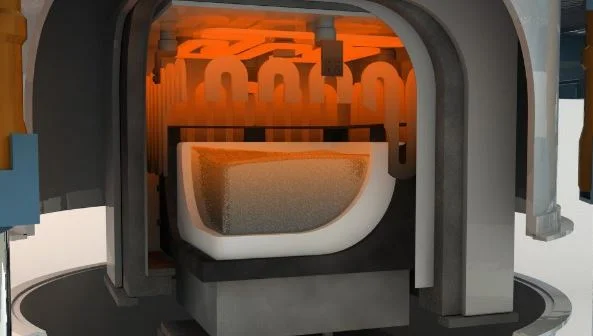
-
Mersen range of high temperature insulation
-
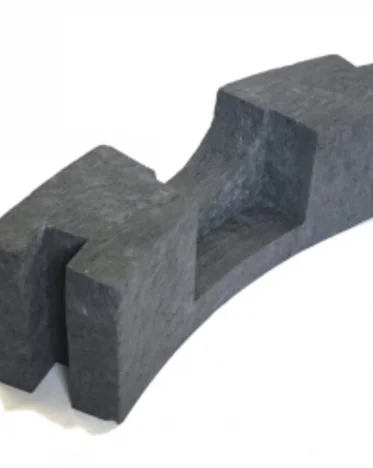
GRAFSHIELD GRI® rigid insulation
Precise temperature control
GRAFSHIELD GRI® high temperature insulation offers rigid insulation with exceptional thermal resistance and conductivity, making it perfect for environments where maintaining precise temperature control is crucial. Its robust structure withstands harsh processing conditions.
-
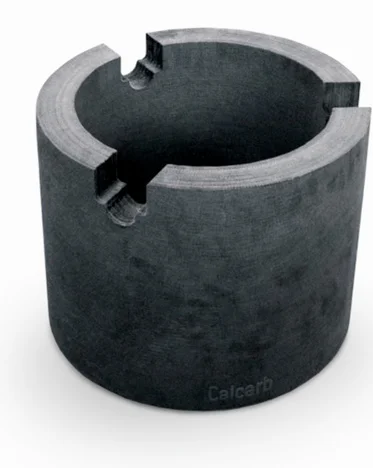
CALCARB® LF7
For thermal insulation up to 2,300°C
CALCARB® LF7 high temperature insulation, a premier rigid insulation material, is known for its outstanding thermal insulation properties and high-temperature stability, supporting up to 2 300°C. Ideal for high temperature furnaces used in semiconductor fabrication, LF7 facilitates precise thermal management, contributing to the high purity and quality of semiconductor wafers.
-
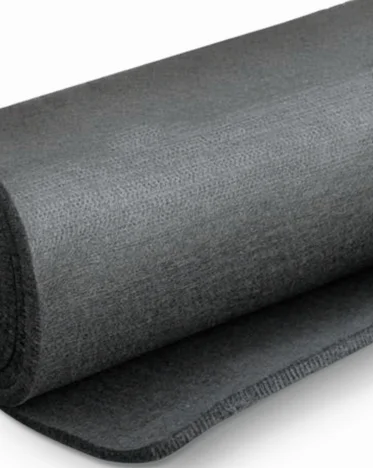
CALCARB® SOFT FELT
For solar cell manufacturing
Specifically useful for solar energy applications, CALCARB® Soft Felt offers flexible high temperature insulation, combining ease of installation with superior thermal protection. Its adaptability and excellent insulation properties make it an ideal choice for solar cell manufacturing processes, where precise temperature control is crucial.
-
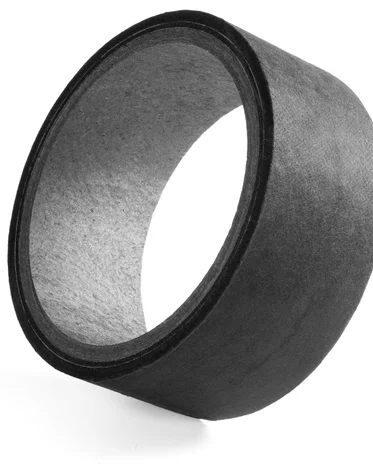
CALCARB® HYBRID
For complex thermal challenges
The CALCARB® Hybrid solution combines the best of rigid and flexible insulation materials, providing a tailored approach to complex thermal challenges. This high temperature insulation is designed for scenarios where a customized insulation solution is required, offering versatility without compromising on thermal efficiency or mechanical stability.
-
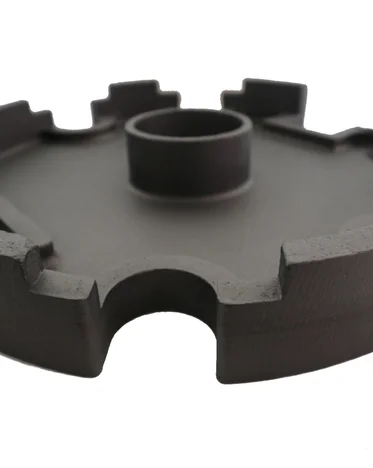
CALCARB® CBCF
For temperatures exceeding 2,000°C
CALCARB® CBCF high temperature insulation features a unique microstructure derived from carbonized phenolic resin and rayon fibers, ensuring exceptional thermal insulation and stability for temperatures exceeding 2,000°C. Its purity and structural integrity make it an optimal choice for manufacturing industries, where it aids in minimizing energy consumption and enhancing process control.
-
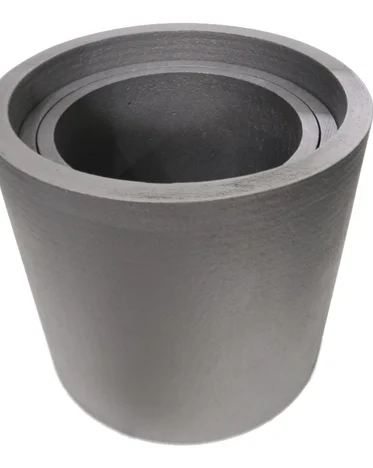
CALCARB® EDGE
For semiconductor and solar energy
Tailored for the demanding needs of the semiconductor and solar energy sectors, CALCARB® EDGE provides unmatched performance in high temperature insulation. It stands out for its superior thermal stability, minimal outgassing, and exceptional purity, making it ideal for SiC growth by PVT, where maintaining a contaminant-free environment at high temperatures is essential.
-
-
What is the best high temperature insulation?
Determining the best high temperature insulation requires a nuanced understanding of each material's properties and how they align with the specific demands of an application. Mersen, with its extensive expertise and innovative solutions, offers industry-leading options tailored to the unique requirements of sectors such as semiconductors and solar energy.
-
For semiconductors
In the semiconductor manufacturing arena, particularly for SiC crystal growth, the choice often comes down to CALCARB® EDGE and CALCARB® CBCF. CALCARB® EDGE, with its unparalleled performance, is specifically engineered to meet the rigorous demands of SiC crystal growth processes. Its superior thermal stability, minimal outgassing, and exceptional purity levels make it the more performant high temperature insulation, ensuring optimal conditions for crystal growth and thus, semiconductor fabrication. CALCARB® CBCF, while also offering excellent thermal insulation and stability, provides a versatile solution that can be adapted across various semiconductor manufacturing processes. The choice hinges on the specific requirements of the crystal growth environment, where CALCARB® EDGE stands out for its specialized application.
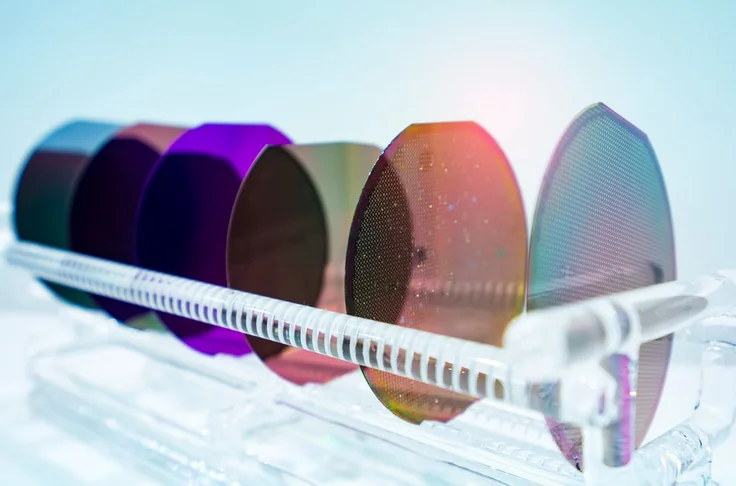
-
For solar energy
For solar energy, particularly in PV manufacturing, the decision between CALCARB® Soft Felt and CALCARB® CBCF is critical. CALCARB® Soft Felt is the most widespread option due to its flexibility and excellent thermal insulation properties, making it ideally suited for solar cell production processes where adapting to complex shapes and maintaining precise temperature gradients are paramount. Its ability to enhance energy efficiency and protect against thermal shocks offers significant advantages in PV manufacturing. On the other hand, CALCARB® CBCF high temperature insulation, with its unique microstructure and high-temperature stability, also presents a compelling choice for applications requiring rigid insulation with exceptional thermal management capabilities. The selection largely depends on the specific thermal insulation needs of the PV manufacturing process, with CALCARB® Soft Felt leading for its adaptability and overall efficiency.
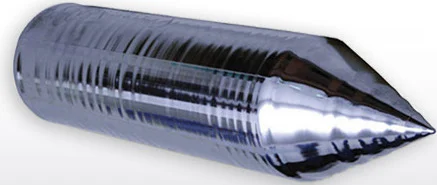
-
Why choose Mersen for your high temperature insulation?
Choosing Mersen for your high temperature insulation needs means partnering with a global producer and leader recognized for its commitment to innovation, quality, and sustainability.
A global leader of high temperature insulation solutions
Mersen distinguishes itself not merely as a supplier but as a vital partner to its customers. Our proximity to customers worldwide enables us to offer unparalleled support, tailored to each client's specific needs. As a producer deeply ingrained in the fabric of the industries we serve, Mersen boasts an intricate understanding of high temperature processes, ensuring the stability and reliability of our specifications over time. This deep industry insight allows us to anticipate and innovate, staying ahead of evolving demands.
Meeting specific needs for high temperature insulation
Understanding that not many applications are the same, Mersen offers a comprehensive range of high temperature insulation solutions, each designed to address the unique challenges of different high temperature environments. Our extensive portfolio ensures that every customer finds the perfect fit for their specific application, such as high temperature insulation for semiconductors and solar energy.
High temperature insulation up to 3000°C
Mersen's high temperature insulation solutions are engineered to withstand temperatures up to 3000°C, setting a benchmark for performance in extreme conditions. This capability ensures that our materials provide effective thermal management and protection across a wide range of applications.
Commitment to sustainability
In line with our dedication to innovation, Mersen is equally committed to sustainability. Our high temperature insulation solutions are designed not only for performance and reliability but also with an eye towards environmental responsibility. By enhancing energy efficiency and extending equipment lifespan, we help reduce the carbon footprint of high temperature processes, aligning with our clients' sustainability goals and contributing to a greener future.
-
Questions about high temperature insulation
-
How to choose your high temperature insulation for solar energy?
Choosing the right high temperature insulation for solar energy applications involves considering the specific thermal management requirements of your processes. Factors such as the operating temperature range, thermal conductivity needs, and physical properties of the insulation material are crucial. For PV manufacturing, materials that can withstand high temperatures while providing excellent thermal stability, like CALCARB® Soft Felt, are ideal due to their flexibility and effectiveness in managing thermal gradients critical for the crystallization process.
-
How does high-temperature insulation contribute to energy efficiency and cost reduction?
High temperature insulation significantly enhances energy efficiency by minimizing heat loss in industrial processes, which in turn reduces the energy required to maintain optimal operating temperatures. This conservation of energy not only leads to substantial cost savings over time but also contributes to reduced greenhouse gas emissions, aligning with sustainability goals. By optimizing thermal management, high temperature insulation ensures processes run more efficiently, extending equipment lifespan and decreasing maintenance costs.
-
What is the maximum temperature tolerance for high temperature insulation?
The maximum temperature tolerance for high temperature insulation varies depending on the material composition and structure. Mersen's high temperature insulation solutions, such as CALCARB® EDGE, are engineered to withstand temperatures up to 2.400°C. This exceptional temperature tolerance makes them suitable for the most demanding applications in sectors like semiconductors, where maintaining performance at extreme temperatures is essential.
-
How can high temperature insulation for semiconductors help reduce contamination of silicon wafers?
High temperature insulation plays a pivotal role in semiconductor manufacturing by maintaining a controlled and stable environment that minimizes the risk of contamination. Materials like CALCARB® CBCF or CALCARB® EDGE, which offer low outgassing rates and high purity levels, are critical in preventing the introduction of impurities into the process chamber. This ensures that silicon wafers are produced in a clean environment, reducing defects and enhancing the overall quality of semiconductor devices.
-
-
Contact
Need to get information about our high temperature insulation?
